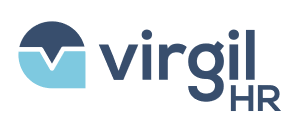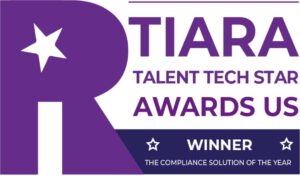Employment & Labor laws and regulations have been evolving rapidly in recent years, with new legislation being introduced at the local, state, and federal levels. These new laws can significantly impact how companies manage their HR teams and pose new challenges and compliance requirements for employers. Whether you’re an HR professional or a business owner, staying informed about new employment & labor laws is essential to protecting your company and employees.
Have New HR Laws Been Implemented in 2023?
New Minimum Wage
The minimum wage was raised in several states in January. While the federal rate will remain $7.25 per hour, many states have adjusted their rates. From Maine’s increase to $13.80/hour to Washington’s increase to a national high of $15.74/hour, all these increases will occur in 2023.
Food and Rest Break Compliance
Meal and rest time premiums must be reported on an employee’s wage statement and paid within the specified limit for all wages owed in California.
Failure to properly pay workers during their employment results in inaccurate wage statements and failure to pay all wages when due. Employers can avoid these potentially significant statutory fines by maintaining accurate and solid payroll best practices
Rules Concerning Bereavement Leave
Employers in California must provide eligible employees with time off after losing a qualifying family member. Five days of unpaid bereavement leave must be given to these employees when applicable. Employees must also be allowed to use any paid vacation, personal leave, accumulated and accessible sick leave, or compensated time off available while on leave.
Paid Family Leave Insurance
The “overall premium” rate for the Washington Paid Family and Medical Leave Program increased from 0.6% to 0.8% on January 1, 2023.
Beginning on September 3, 2023, Oregon’s new Paid Family and Medical Leave Insurance program will be funded by employer and employee contributions in the form of payroll deductions. It will provide employees up to 12 weeks of paid time off for leave that qualifies as family, medical, or safe leave, absent undue hardship.
What Employment & Labor Laws Should Companies Be Aware Of
Understanding these laws is critical for employers to ensure compliance, avoid costly legal disputes, and maintain positive employee relationships. It is recommended to consult with an HR professional that talks about HR leveraging technology to stay up-to-date.
- Anti-discrimination laws: Employers must comply with anti-discrimination laws that protect employees from discrimination based on protected characteristics, such as race, gender, religion, and disability. It is essential to understand these laws to ensure that your hiring, promotion, and termination practices are fair and non-discriminatory.
- Wage and hour laws: Employers must comply with federal and state wage and hour laws, which regulate minimum wage, overtime pay, and other aspects of employee compensation and benefits. It is important to understand these laws to ensure that your payroll practices are compliant.
- Employee classification: Employers must properly classify employees as exempt or non-exempt based on their job duties and pay them accordingly. Misclassifying employees can result in costly legal action.
- Family and Medical Leave Act (FMLA): Employers within a 75-mile radius must comply with the FMLA, which requires covered employers to provide up to 12 weeks of unpaid leave per year to qualifying employees for specified medical and family reasons.
- Safety and health laws: Employers must comply with safety and health laws, including the Occupational Safety and Health Act (OSHA), which requires employers to provide a safe workplace for employees.
- Privacy laws: Employers must comply with privacy laws that protect employees’ personal information. This includes federal laws like the Health Insurance Portability and Accountability Act (HIPAA) and state laws like the California Consumer Privacy Act (CCPA).
- Employee benefits laws: Employers must comply with laws that regulate employee benefits, such as the Employee Retirement Income Security Act (ERISA) and the Affordable Care Act (ACA).
How Can HR Software Help Businesses Stay Compliant with New Laws and Policies?
HR software can be a valuable tool for helping businesses stay compliant with new laws and policies. Here are some ways in which HR software can help:
Automated Compliance Checks
HR compliance software can automatically check whether HR policies and practices comply with new laws and regulations. It can also alert HR teams about any changes in legislation or regulations that could affect their compliance.
Customized Policy Templates
Create customized policy templates and employee handbooks compliant with the latest laws and regulations. This ensures that businesses have the necessary policies to meet legal requirements.
Employee Data Management
HR software can help businesses manage employee data, including personal information and compliance documents, ensuring they are stored securely and in compliance with data protection regulations.
Document Management
HR software can assist businesses in managing and tracking documentation related to employee compliance, such as employee contracts, benefits, and training records.
Legal FAQs
Find answers to the most common questions regarding new laws and policies. You can even use the Chatbot feature to have automated, fast responses to employee questions regarding time off, benefits, and leave.
HR Resources
When new laws and policies come into effect, it’s great to have charts and information sheets that can be shared with employees through email or visually around the workplace with posters. If you are looking for specific forms to fill out, HR software has it readily available and easy to search for.
Regularly Review Your Company Policies
In addition to compliance issues, regular policy reviews can help companies maintain a positive and productive workplace culture. Outdated, unclear, or inconsistently applied policies can create confusion and frustration among employees and managers. By regularly reviewing and updating HR policies, companies can ensure that they accurately reflect their values and are consistently and fairly applied.
Businesses must comply with laws and regulations to avoid legal and financial consequences, protect their reputation, ensure a safe and fair workplace, and meet ethical and social responsibilities. Non-compliance can result in fines, legal actions, and damage to brand image, negatively impacting revenue and business operations.
Keep up-to-date with Employment & Labor Laws
The laws regarding employment and labor are constantly evolving to keep pace with our changing economy. Staying compliant with these regulations can be a challenge for your HR team. VirgilHR offers an ideal software solution to address this issue! Join us in our efforts to revolutionize HR’s compliance approach. Contact us today to schedule a free demo of our compliance software solution!






